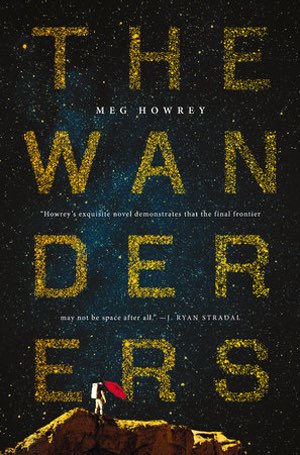Review: The Wanderersby Jeff Foust
|
| It shows is that complex, realistic tales of human missions of Mars need not be confined to science fiction, a genre that, for better or worse, is often considered less serious than mainstream, literary fiction. |
The book’s central characters are the three members of the (simulated) Mars expedition: Helen, the widowed American astronaut with an adult daughter; Sergei, the Russian cosmonaut who recently divorced and has two teenaged sons; and Yoshi, the Japanese astronaut who is married but has no children. The three crewmembers have been selected by Prime Space, a private venture modeled on SpaceX, for the first human mission to Mars and back. Before they go, however, Prime Space wants the crew to undergo a complete, and very realistic, simulation of the entire mission at a facility in the Utah desert.
The novel follows both the crewmembers and some of their family members throughout both the preparations for the simulated mission and the simulation itself. Howrey shifts focus from character to character on a chapter-by-chapter basis, each titled with the main character (or, on a few occasions, characters) who is the subject of that chapter.
The novel uses the simulated Mars mission as a vehicle to examine the relationships among the characters and how they change over time, reflecting the real stresses of a simulated mission, including questions by the crew about what is simulated and what is real. That’s why it’s billed as a “literary fiction” novel more than a “science fiction” one: the mission is the way to examine those relationships, rather than the relationships being secondary to the drama of Mars exploration.
Yet, Howrey takes no shortcuts with the science and technology of The Wanderers. The mission concepts, spacecraft, and various technologies are all clearly based on real concepts that have been proposed or are under development. (Howrey notes in the book’s acknowledgements she was inspired by the Mars500 simulated mission, and did considerable research to convert that idea into this novel.) It is not as technically detailed as Andy Weir’s The Martian, but it is no less realistic.
That combination of hard science and interesting characters makes The Wanderers a fascinating novel. The large cast of characters, and their complex interrelationships, can be a little daunting to follow at times, and the novel is not one for people who like nice, tidy conclusions. What it shows is that complex, realistic tales of human missions of Mars need not be confined to science fiction, a genre that, for better or worse, is often considered less serious than mainstream, literary fiction. That might be the surest sign yet of the cultural acceptance of human exploration of the Red Planet.
